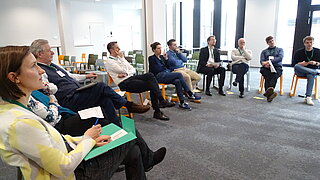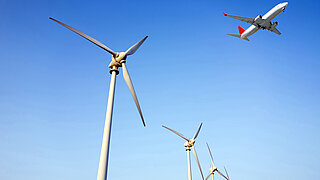CO2-neutral air travel thanks to synthetic kerosene: PtX Lab Lausitz presents aviation issue paper
Copyright: AdobeStock/Piotr Mitelski
A new publication summarises the state of the art on the climate impact of aviation and possible emissions reduction.
The most important facts and figures in understandable language: The PtX Lab Lausitz has published a new topic paper on the reduction of C02 emissions in aviation. In it, the Cottbus-based think tank not only summarises the current status of emissions in aviation, but also sheds light on the prospects for reducing so-called non-CO2 effects and their impact on global warming in the coming years and decades. In the 31-page publication, the authors provide, among other things, an overview of general technical basics as well as short-term developments - such as in the wake of the Corona pandemic - and long-term goals that also result from national and international climate protection goals. The PtX Lab Lausitz pays particular attention to the importance of synthetic fuels based on green hydrogen.
The paper concludes that synthetic fuels are currently the only way to make aviation CO2-neutral, as battery-electric propulsion systems do not offer a broad alternative for meeting the climate targets by 2045. In their paper, the authors describe how a market ramp-up of synthetic kerosene - produced in the power-to-liquid process - could succeed, or rather what steps should be taken to achieve this. Due to the already defined blending quotas for electricity-based synthetic fuels in Germany, there are signs of an increase in demand for synthetic fuels in aviation. In this regard, the PtX Lab Lausitz also takes a look into the future and outlines options for the cost development of the different fuels in comparison.
Further introductory papers on the Lab's main areas of work are planned or already in progress for the coming months.

